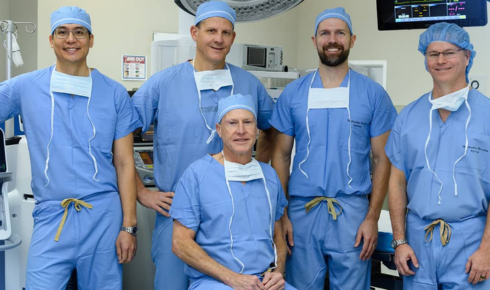
Orthopedic Surgeons: Leaders In Advancing Treatment For Bone Fractures
Bone fractures are common, but they can be life-altering. Orthopedic surgeons play a key role in advancing treatments. These experts lead the way in care, using their skills to mend broken bones. The approach, sometimes called “360 Orthopedics,” includes various methods to restore health. From setting bones to performing complex surgeries, they ensure patients get back on their feet.
Understanding Bone Fractures
Bone fractures occur when a force applied to a bone is stronger than the bone itself. This can happen due to falls, accidents, or direct impacts. Fractures vary in type and severity. The main types include simple fractures, compound fractures, and stress fractures.
| Type of Fracture | Description |
| Simple Fracture | The bone breaks cleanly without piercing the skin. |
| Compound Fracture | The broken bone pierces through the skin. |
| Stress Fracture | A small crack in the bone due to repetitive force or overuse. |
Orthopedic Surgeons: Experts in Treatment
Orthopedic surgeons are highly trained professionals. They complete extensive education and residency programs. Their expertise covers diagnosis, treatment, and rehabilitation of musculoskeletal issues.
According to the National Institutes of Health, early and correct treatment of fractures is crucial. This may involve casting, reduction, or even surgery. Every step aims to ensure proper healing and restore function.
Advancements in Treatment
Many breakthroughs improve how fractures are treated. Orthopedic surgeons use advanced imaging for accurate diagnosis. Tools like MRI and CT scans give detailed views of fractures, enabling precise treatment plans.
Minimally invasive procedures are now common. These involve smaller incisions and the use of specialized tools. They reduce recovery time and lower infection risks.
Orthopedic surgeons also explore biological therapies. Using bone grafts and stem cells, they stimulate bone healing. This approach offers hope, especially for challenging cases.
Rehabilitation and Recovery
Recovery is more than just mending a bone. Orthopedic surgeons emphasize rehabilitation. Physical therapy strengthens muscles and improves flexibility. It helps patients regain movement and return to daily activities.
The Centers for Disease Control and Prevention highlights the importance of post-treatment care. Rehabilitation speeds recovery and reduces the risk of complications. This holistic approach ensures long-term success.
The Future of Orthopedic Care
The field of orthopedics continues to evolve. Research and technology bring new possibilities. Robotics and artificial intelligence may soon assist in surgeries. These advancements promise more precise and effective treatments.
Orthopedic surgeons remain at the forefront. Their commitment to innovation ensures better outcomes for patients. With each advancement, they enhance the quality of life for those affected by fractures.
Conclusion
Orthopedic surgeons are leaders in advancing treatment for bone fractures. Through expertise and innovation, they transform lives. From accurate diagnosis to effective rehabilitation, they ensure comprehensive care. Their dedication and skill set the standard in treating fractures today and in the future.



